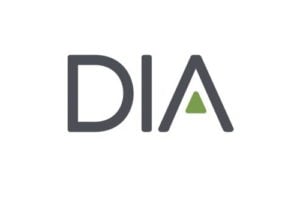Good Practices & Convergence: Building Stronger Regulatory Systems in the Americas
Regulatory systems play a crucial role in health systems by ensuring that medicines and other health technologies (including vaccines, blood and blood products, and medical devices) are properly evaluated and meet international standards of safety, quality, and efficacy. To achieve their public health objectives, regulators in Latin America and the Caribbean are increasingly relying on networking, dialogue, and trust, while maintaining their sovereignty and interdependence. Collaboration and cooperation between regulators have positively influenced and strengthened the capacity of regulatory systems in the region, making the best use of their limited resources to address regulatory challenges in a timely manner, including better preparedness for the COVID-19 pandemic response.As evidenced by the pandemic, the efficient performance of regulators directly influences public health. Among regulatory best practices, one of the key enablers of regulatory efficiency is reliance. It has proven to be useful for different regulatory functions (including market authorization, post-approval changes, and GMP certification) and different types of products, as evidenced by the extensive use of reliance approaches for COVID-19 medical devices, vaccines, and medicines. As regulators in Latin America and the Caribbean expand the use of reliance, experiences from different stakeholders and lessons learned in other regions are considered crucial for proper implementation of local reliance mechanisms. Likewise, tools and opportunities are available to support regulators in the region to further embed fundamental principles of good regulatory practices within their institutions and activities.
Regulatory convergence, another driver for efficiency, takes many forms and represents an effort to improve the transparency and alignment of interactions between agencies and the industry regarding scientific principles, practices, and procedures. Convergence is reflected in the acceptance of internationally recognized technical guidance documents and implementation of regulatory mechanisms. Participation in international or regional regulatory initiatives has been of great significance in building trust, fostering mutual collaboration among health authorities, and enabling more robust regulatory systems, all for the benefit of patients. Regulators from the Americas are increasing their global footprint by developing agendas for international cooperation. For example, the regulatory authorities of Argentina, Brazil, Colombia, Cuba, and Mexico are participants in the International Coalition of Medicines Regulatory Authorities (ICMRA), and COFEPRIS recently joined ANVISA as the second regulatory member of Latin America in the International Council for Harmonisation of Technical Requirements for Pharmaceuticals for Human Use (ICH). Reliance approaches have been instrumental in allowing easier exchange of information among regulators, fostering greater levels of convergence with internal standards and harmonization of regulatory requirements across the region. Through reliance, regional international organizations, health authorities, research institutions, and industry share their perceptions about the present and future of regulation, which points toward transparent, predictable, and consistent regulatory activity where each contributor can focus their efforts on where they add the best value.
The journey toward greater regulatory efficiency in the Americas has been supported by the regional system for evaluation of National Regulatory Authorities (NRAs), which the Pan American Health Organization (PAHO) has been implementing for more than a decade. This process of NRA assessment and evaluation is based on verification of indicators in a regionally developed data collection tool based on recommendations from the World Health Organization (WHO). Such a system has been used to define NRAs of regional reference in the Americas: currently ANMAT (Argentina), ANVISA (Brazil), Health Canada, ISP (Chile), INVIMA (Colombia), CECMED (Cuba), COFEPRIS (Mexico), and the FDA (US). These regulators are committed not only to enhancing their national regulatory practices and procedures but to helping other regulatory systems in the region become stronger. By promoting regulatory collaboration and influencing regulators to make the best use of their limited resources, PAHO has been playing an important role in supporting increased regulatory capacity in the region.



